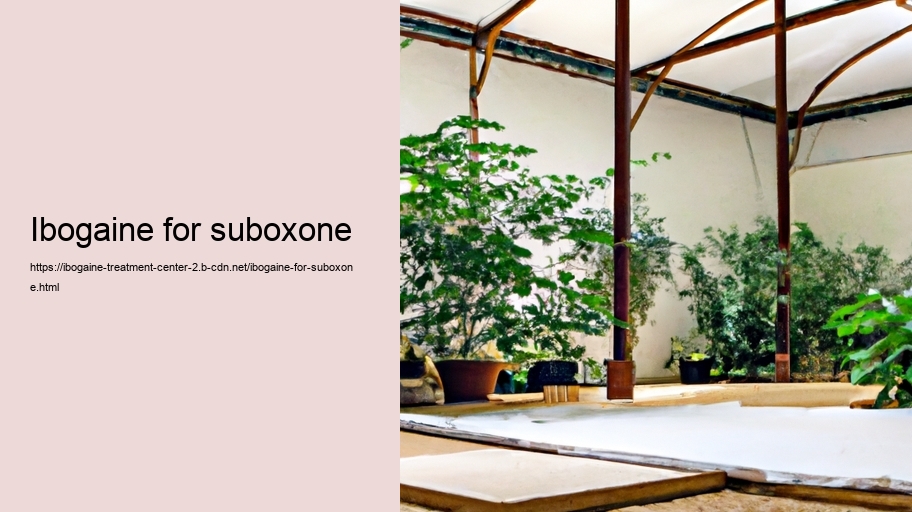Ibogaine for Suboxone: Exploring Alternative Treatments in the Battle Against Opioid Dependence
The opioid crisis has grown into a global conundrum, with millions of individuals ensnared by the tenacious grip of addiction. Suboxone, a medication combining buprenorphine and naloxone, has been a beacon of hope for many, offering a way to manage dependence and reclaim lives from the throes of opioids. However, traditional therapies like Suboxone are not without their challenges. It's in this context that ibogaine emerges as an alternative - controversial yet compelling - with potential to reshape the landscape of addiction treatment.
Ibogaine is a naturally occurring psychoactive substance derived from the root bark of the African shrub Tabernanthe iboga. Traditionally used in spiritual ceremonies by indigenous West Africans, it has gained attention for its capacity to alleviate withdrawal symptoms and reduce drug cravings, potentially offering a fast-track path toward sobriety.
The journey towards considering ibogaine as an aid against opioid dependence is marked by anecdotal success stories and intriguing research findings. Unlike Suboxone, which is often part of long-term maintenance therapy requiring daily dosing, ibogaine is typically administered in a single session or over a few sessions under strict medical supervision due to its potent effects on both mind and body.
Advocates for ibogaine therapy argue that its ability to induce a profound psychological experience can help individuals confront their addiction at an emotional level. During an ibogaine-induced state, users often report introspective insights that allow them to address underlying issues fueling their substance abuse – something conventional medications do not directly provide.
However, it’s crucial to approach ibogainewith caution. Its use is not without risks; it can affect heart rhythm and interact unpredictably with other substances. Additionally, while there are promising studies indicating its effectiveness in reducing withdrawal symptoms and cravings, these are often limited by small sample sizes or lack rigorous scientific control.
Despite these concerns, some have turned to ibogainewhen conventional treatments have failed or when they desire an abrupt end to their dependency without enduring prolonged withdrawal syndromes associated with opioids or even Suboxone itself. It’s worth noting that Suboxone is designed as part of a comprehensive treatment plan including counseling and support groups – elements just as critical with any form of intervention including those involving iboga-derived therapies.
As we examine the possibilities offered by ibogainefor treating opioid dependence more thoroughly through clinical trials and research studies – which should be prioritized given the severity of the opioid crisis – ethical considerations must also be at forefront. Iboga-related treatments remain illegal or unregulated in many countries partly due attributed to safety concerns but also due perhaps less benignly,to established pharmaceutical interests invested in existing drug therapies such as Suboxone.
In conclusion,the exploration of alternative options like iboga-derived therapies underscores our continued search for effective solutions against oneof society's most challenging adversities: breaking free from opioid addiction.Iboga may hold promiseas part oftreatment regimens,butit demands careful considerationand regulationto ensurethatits potentialcan be harnessed safelyand ethically.In parallel,policymakersand healthcare providersmust continue supporting existingtreatmentswhile remaining open-minded about new modalities that could provide additional hopefor those strugglingwithaddiction.Substanceabuseis complex,and overcoming itmayrequire tapping into pharmacological aidsfrom all cornersofthe earth—includingthelightshiningfromwithinthe roots ofan Africantree.
